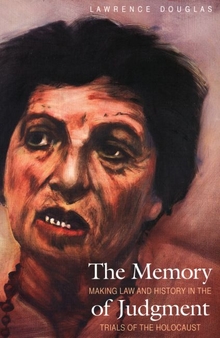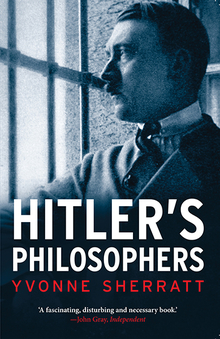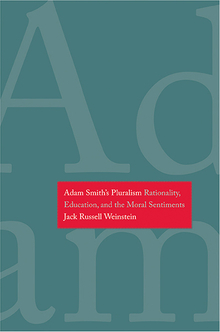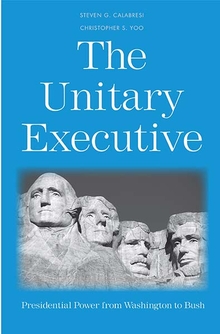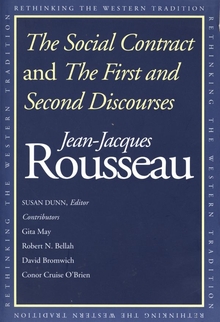The Memory of Judgment
WARNING
You are viewing an older version of the Yalebooks website. Please visit out new website with more updated information and a better user experience: https://www.yalebooks.com
Making Law and History in the Trials of the Holocaust
Lawrence Douglas
This powerful book offers the first detailed examination of the law’s response to the crimes of the Holocaust. In vivid prose it offers a fascinating study of five exemplary proceedings—the Nuremberg trial of the major Nazi war criminals, the Israeli trials of Adolf Eichmann and John Demjanjuk, the French trial of Klaus Barbie, and the Canadian trial of Holocaust denier Ernst Zundel. These trials, the book argues, were “show trials” in the broadest sense: they aimed to do justice both to the defendants and to the history and memory of the Holocaust.
With insight Lawrence Douglas explores how prosecutors and jurors struggled to submit unprecedented crimes to legal judgment, and in so doing, to reconcile the interests of justice and pedagogy. Against the attacks of such critics as Hannah Arendt, Douglas defends the Nuremberg and Eichmann trials as imaginative, if flawed, responses to extreme crimes. By contrast, he shows how the Demjanjuk and Zundel trials turned into disasters of didactic legality, obfuscating the very history they were intended to illuminate.
In their successes and shortcomings, Douglas contends, these proceedings changed our understandings of both the Holocaust and the legal process—revealing the value and limits of the criminal trial as a didactic tool.
With insight Lawrence Douglas explores how prosecutors and jurors struggled to submit unprecedented crimes to legal judgment, and in so doing, to reconcile the interests of justice and pedagogy. Against the attacks of such critics as Hannah Arendt, Douglas defends the Nuremberg and Eichmann trials as imaginative, if flawed, responses to extreme crimes. By contrast, he shows how the Demjanjuk and Zundel trials turned into disasters of didactic legality, obfuscating the very history they were intended to illuminate.
In their successes and shortcomings, Douglas contends, these proceedings changed our understandings of both the Holocaust and the legal process—revealing the value and limits of the criminal trial as a didactic tool.
Lawrence Douglas is associate professor in the department of law, jurisprudence and social thought at Amherst College.
“In these cultural histories of the most notorious Holocaust trials, Lawrence Douglas fuses a rigorous legal critique with razor-sharp literary and historical sensibilities. The result is a lucid and gripping account that illustrates both the limitations of these trials for historical understanding and their profound cultural significance as arbiters of public memory.”—James E. Young, author of The Texture of Memory and At Memories Edge and Professor and Chair of Judaic and Near Eastern Studies at the University of Massachusetts at Amherst
“The central issue of this book—whether the law has succeeded in doing justice to the Holocaust—will rouse interest in readers from many disciplines and professions. How to shape a category in international law that can name and condemn for the future crimes against humanity remains a burning issue today.”—Lawrence L. Langer, author of Preempting the Holocaust and Holocaust Testimonies: The Ruins of Memory
“Beginning with Nuremberg and ending with the trial of a Holocaust-denier, this remarkable book argues powerfully that courtrooms can not only render justice, but also educate. A brilliant and authoritative survey by someone who is both sympathetic to the didactic use of legal discourse and aware of the awesome challenge it faces when dealing with crimes of unspeakable horror and magnitude.”—Michael R. Marrus, University of Toronto
“With exquisite grace, technical brilliance, and philosophic insight, Lawrence Douglas has given us a worthy successor to Hannah Arendt’s Eichmann in Jerusalem. He asks us to imagine a law might not only deliver justice, but also help us understand an atrocity so horrendous that it seems to defy all understanding.”—Owen Fiss, Sterling Professor of Law, Yale University
“With exquisite grace, technical brilliance, and philosophic insight, Lawrence Douglas has given us a worthy successor to Hannah Arendt’s Eichmann in Jerusalem.”—Owen Fiss, Sterling Professor of Law, Yale University
“[A] superb book. . . . The subjects Douglas selected . . . are impressively analyzed; even the carefully imagined inclusion of many photographs and the well-chosen quotations that accompany all of them further draw the reader into the intricate web of the Holocaust and its legal ramifications.”—Rebecca Elizabeth Wittmann
“A worthy participant in the debate begun by Hannah Arendt in her blistering critique of the Eichmann trial. This is a very good book about a very important topic."—Robert A. Burt, Yale Law School
“The Memory . . . [is] not only topical but indeed urgent. . . . Even readers familiar with these events will find Douglas’s account filled with new and intriguing details. . . . Those who want the United States to fulfill its noble role in helping to create a world court to inhibit and punish the worst malefactors on the planet should ponder the lessons and wisdom in Professor Douglas’s valuable book. . . . The Memory of Judgment is not only topical but indeed urgent. . . . Even readers familiar with these events will find Douglas’s account filled with new and intriguing details.”—Robert F. Drinan, America
“Of the many books on war crimes, genocide, and justice recently published, Lawrence Douglas’s study is among the most accessible and penetrating. Combining expert knowledge of national and international law with a historian’s sensibility to context and nuance, Douglas analyzes the transformation in legal approaches to the Holocaust. . . . His excellent book will be of great value to historians, legal scholars, and all those who want to understand the potential and limits of judging past and present crimes against humanity.”—Omer Bartov, American Historical Review
“In this superb book Douglas contends against Hannah Arendt, Ian Buruma, Michael Marrus, and others, that…trials can serve successfully as pedagogical tools.”—Rebecca Wittmann, Ethics and International Affairs
"Douglas's The Memory of Judgment . . . is a brilliant study, and should be required reading for anyone even remotely interested in the subject."—Jan Klabbers, European Journal of International Law
“By examining five trials of the Holocaust crimes, Lawrence Douglas challenges the belief that the sole purpose of criminal trials is to render justice. . . . This powerful and original book should be interest to a wide range of readers.”—Harvard Law Review
“In this superb book, Lawrence Douglas finds middle ground between critics who argue for a strictly legal approach to bringing the perpetrators to justice, and those that argue that legal forums and procedures mangle and distort a sophisticated understanding of such events. . . . Douglas’s . . . positive re-evaluation of the Eichmann trial serves as a valuable corrective and should influence all future scholars examining the public memory of the Holocaust. As historians begin to come to grips with a new round of genocide trials stemming from Rwanda and the former Yugoslavia, they too would be advised to include this book as a starting point for their explorations.”—Craig Pepin, H-Net Reviews
“The Memory of Judgment is a superbly crafted and imaginative argument in defense of the law and its ability to maintain integrity in the face of traumatic history. . . . The Memory of Judgment offers not only new perspectives on the trials of major Nazi perpetrators but, more important, an alternative way to read and analyze legal attempts to confront the traumatic history of Holocaust.”— Hilary Earl, Holocaust and Genocide Studies
“An important, rigorous and insightful study of atrocity, memory, survivor testimony and their collectively fraught history of casting and judgment in legal process.”—Simone Gigliotti, International Affairs
“Douglas’s book is…an important contribution not only because of the new questions that it poses but also due to its sophisticated use of new theoretical approaches to law in addressing these questions.”—Leora Bilsky, Journal of Modern History
“[An] excellent scholarly analysis of various historical aspects of the growth of internal criminal prosecution. . . . Powerful and well-researched.”—Robert Clifford, Michigan Law Review
“Lawrence Douglas’ The Memory of Judgment is a marvelously discerning and exquisitely written examination of how history was served, sometimes well and sometimes poorly, by several major trials mounted in response to the Holocaust. . . . It is difficult to over-praise this book. Douglas combines rare gifts: he can tell a story marvelously well, and use it to furnish philosophical reflections of great insight and depth. His prose is beautifully flexible and precise, and he is virtuosic in his ability to tease out the multiple meanings of courtroom argument or testimony. . . . The Memory of Judgment deserves the widest possible readership.”— Jamie Mayerfield, Punishment and Society
“Douglas takes on [Hannah] Arendt directly, challenging her view that the law should judge only the guilt or innocence of the accused. Although he recognizes the tension between strictly applying law to the facts of one case and creating a broader historical record, he believes a war crime tribunal can do both. . . . Thorough and convincing.”—Daphne Eviatar, The Nation
“An engrossing book. . . . A lucid, theoretically sophisticated analysis of some of the major stages of the law’s response to the Shoah. . . . The Memory of Judgment is an impressively thoughtful work, important not merely for what it reveals about how the Shoah has been figured in post-war Western jurisprudence, but more generally, about the possibilities and limitations of a criminal trial as an instrument of historical understanding and commemorative pedagogy.”—Michael A. Bernstein, Times Literary Supplement
ISBN: 9780300109849
Publication Date: May 15, 2005
Publication Date: May 15, 2005
336 pages, 6 x 9

